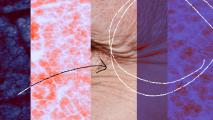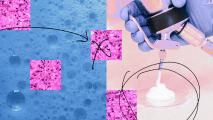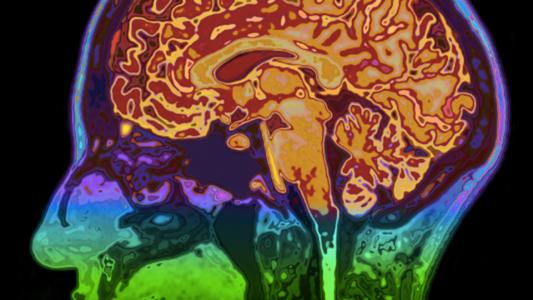Meet the mom curing her daughter's incurable disease
When Karen Aiach’s infant daughter Ornella was diagnosed with a fatal genetic disorder, she upended her own life to find a cure. Five years after doctors told her Ornella likely wouldn’t live past adolescence, Karen won approval to put the treatment she developed into clinical trials. Her first subject? Ornella.
This is practically unheard of. Karen isn’t a doctor, and had never worked in medicine. The disease Ornella has–called Sanfillipo syndrome–is so rare that almost no one was trying to cure it. But by raising the money and coordinating researchers from across the globe, she was able to develop a revolutionary treatment. And she did it using gene therapy.
“Some people would say, ‘What is she going to do? If no one has done it before, it’s because it cannot be done.” – Karen Aiach
Right now, there are only three gene therapies on the market in the entire world. First developed in 1988, it’s one of the newer and most cutting edge therapy techniques we have. It involves using a virus to replace faulty genetic code with good genetic code.
Lysogene, the company Karen started, has changed Ornella’s and Karen’s lives. And if it passes clinical trial stage, it could change the lives of Sanfilippo sufferers across the globe–and pave the way for a bold new era of medicine.





